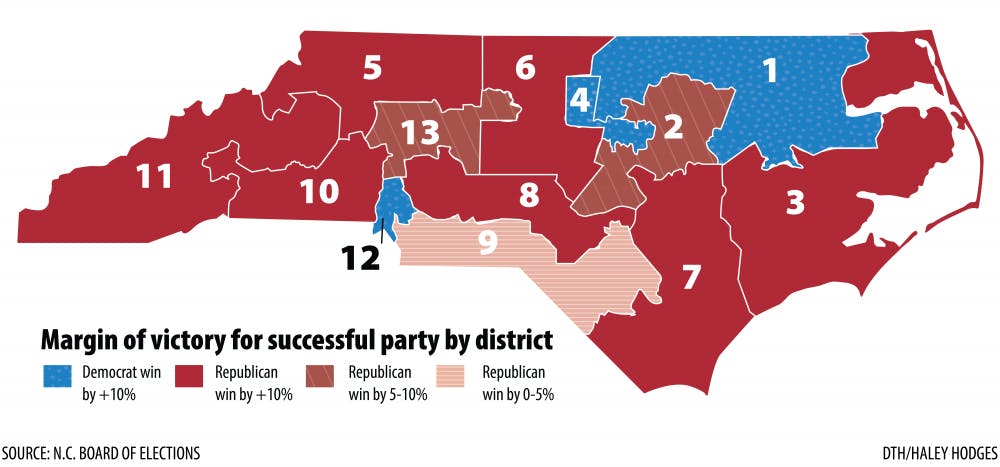Earlier this year, the U.S. Supreme Court ruled that "partisan gerrymandering claims present political questions beyond the reach of federal courts," but acknowledged that these claims can be addressed at the state level or by Congress.
On Sept. 3, a three-judge panel of the Wake County Superior Court did just that.
In Common Cause, et al. v. Lewis, the judges unanimously ruled that North Carolina’s legislative maps are unconstitutional, citing the Free Elections Clause of the N.C. Constitution in their decision.
“It is not the free will of the People that is fairly ascertained through extreme partisan gerrymandering,” they said. “Rather, it is the carefully crafted will of the map drawer that predominates.”
The court found that when enacting the 2017 legislative maps, the N.C. General Assembly had a partisan interest to create maps that preserved Republican control. Partisan intent, the court said, prevailed over all other redistricting criteria and ensured Republican control over the General Assembly in all but the most unusual election scenarios.
The court ruled that the defendants offered no meaningful defense of the 2017 maps, rejecting criticisms of the plaintiffs’ witnesses and the argument that the plaintiffs sought proportional representation. It also recognized that no witnesses for the defense denied that the 2017 maps are intentional and effective partisan gerrymanders.
The General Assembly was ordered to enact remedial maps within two weeks, a process which must be conducted in full public view. Legislators must avoid pairing incumbents unduly in the same election district and are forbidden from factoring election data or previous maps into the redistricting process. The maps must comply with the Voting Rights Act and other federal requirements concerning the racial composition of districts.
Bob Phillips, the executive director of Common Cause NC, said in a statement that the ruling is a historic victory.
“What’s crucial now is ensuring that the legislature fully complies with the court’s order and draws new legislative districts in a timely fashion, with full transparency and robust public input, absolutely free from gerrymandering,” he said.




